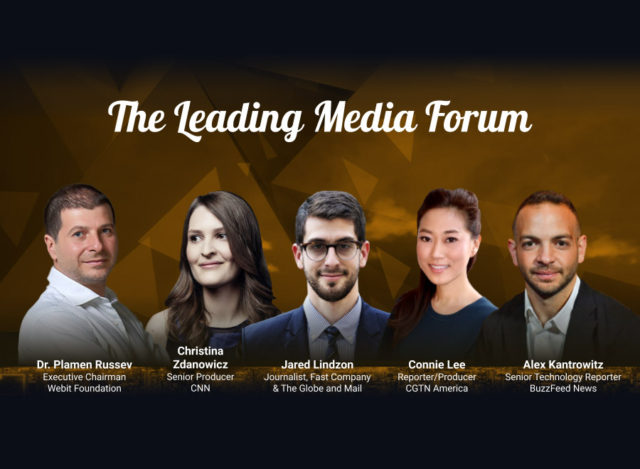Webit Virtual Leading Media Forum hosted a wide range of eye-opening, informative, useful and inspiring discussions during The Future of Work and Education Week which was under the theme: “The future of skills and learning in a post-Covid-19 world”
We all know that education is the future. And that the future belongs to the educated people. But what kind of education and skills do we need in this quickly changing environment and disrupted world in order to be successful, to fulfill ourselves and to use the whole potential that every single human being holds within? Over 8 thousand simultaneous virtual attendees from the Global Webit Community at the live event on Thursday, June 4th, wanted to learn the answer of this question, important for all mankind and the future generations.During The Leading Media Forum we made a deep observation and analysis and of both – the discussion on Tuesday, June 2nd and the most important changes happening lately on the whole Global scene concerning the future of work and education with the help of the special guests including some of world’s leading journalists, writers and forward thinkers:
🌟 Alex Kantrowitz– Senior Technology Reporter at BuzzFeed;Christina Zdanowicz – Senior Producer at CNN; Connie Lee – Reporter/Producer at CGTN; Jared Lindzon -Journalist at Fast Company.
During the panel some important and impactful topics were outlined, including how the education system has been disrupted, how 1.5 billion students are not physically at school right now and the chance that this gives us to reinvent education worldwide, to find new ways to teach things and some new opportunities to work and achieve our own goals and to develop as a society. The host of Webit Virtual and the Executive chairman of Webit, Dr. Plamen Russev emphasized on the importance of looking at every change positively and not putting a lot of negative expectations out there as this might become a self fulfilling prophecy. Jared went even further claiming that such moments of disruption actually provide a perfect opportunity to make some very badly needed changes that have been needed for a long time. That is where the key is, that’s where the opportunity is. The pandemic is shaping the future of work and it is bringing it here much faster than it was scheduled Connie foreseen a lot of blending between physical and virtual work in the future providing some statistics, numbers proving that tendency:
-
- Last year more than 60% of companies allowed remote work.
- 20% of companies were already completely remote.
- After the pandemic these numbers spiked and a recent survey had said nearly 75% of CFOs said they want to shift at least 5% of their employees to a remote working
model.
Companies and schools are going to have to innovate in order to survive and to thrive during this time. It is really important to adjust every sector of our life to the quickly changing world , to adapt and to find new ways of doing things. Alex highlighted the need to separate work into two categories. The first is ideal work. That’s anything involved with creating a new product and bringing it to life. The second part of it is execution work, anything that’s involved in supporting an existing product.Kantrowitz said that what makes difference about the Tech giants and what makes them so successful and much more successful than the average companies is that they’re using technology to minimize the amount of execution work inside their companies and maximize the amount of time they have for ideal work. Their employees, compared to traditional companies, are spending much more time developing new things and existing products, because they’ve used automation, artificial intelligence and collaboration software to be able to work more on ideas.
- We need to develop an education system that’s focused on getting people to think innovatively, getting people to think in a way that makes them take chances and to think more abstractly, not just how to get from point A to point B. -said Alex.
- There’s a need for constant innovation, for constant learning. Because what you’ve learned in school is probably going to be obsolete by the time you graduate.- added Jared, concluding that the hard skills are becoming less significant than the soft skills.- The soft skills that will allow you to adapt, to evolve, and grow over time are much more valuable to employers than just a lot of expertise in one narrow field.
And where to develop those soft skills? We ended the discussion with an open question and an answer opened to life itself and the lifelong learning, interdisciplinary education, diversity of work experience and other various personal experiences like voluntary activities, etc. that makes you more flexible and that create new neuron connection in you brain so that you are more capable of inventing and exploring new, exciting ways of creating the desirable future. So go and live your life,“keep doing the work you love, because it will be noticed” as Christina said.
Written by
Teodora Hadjibojeva,
Press Officer and Media Coordinator
Webit Foundation
